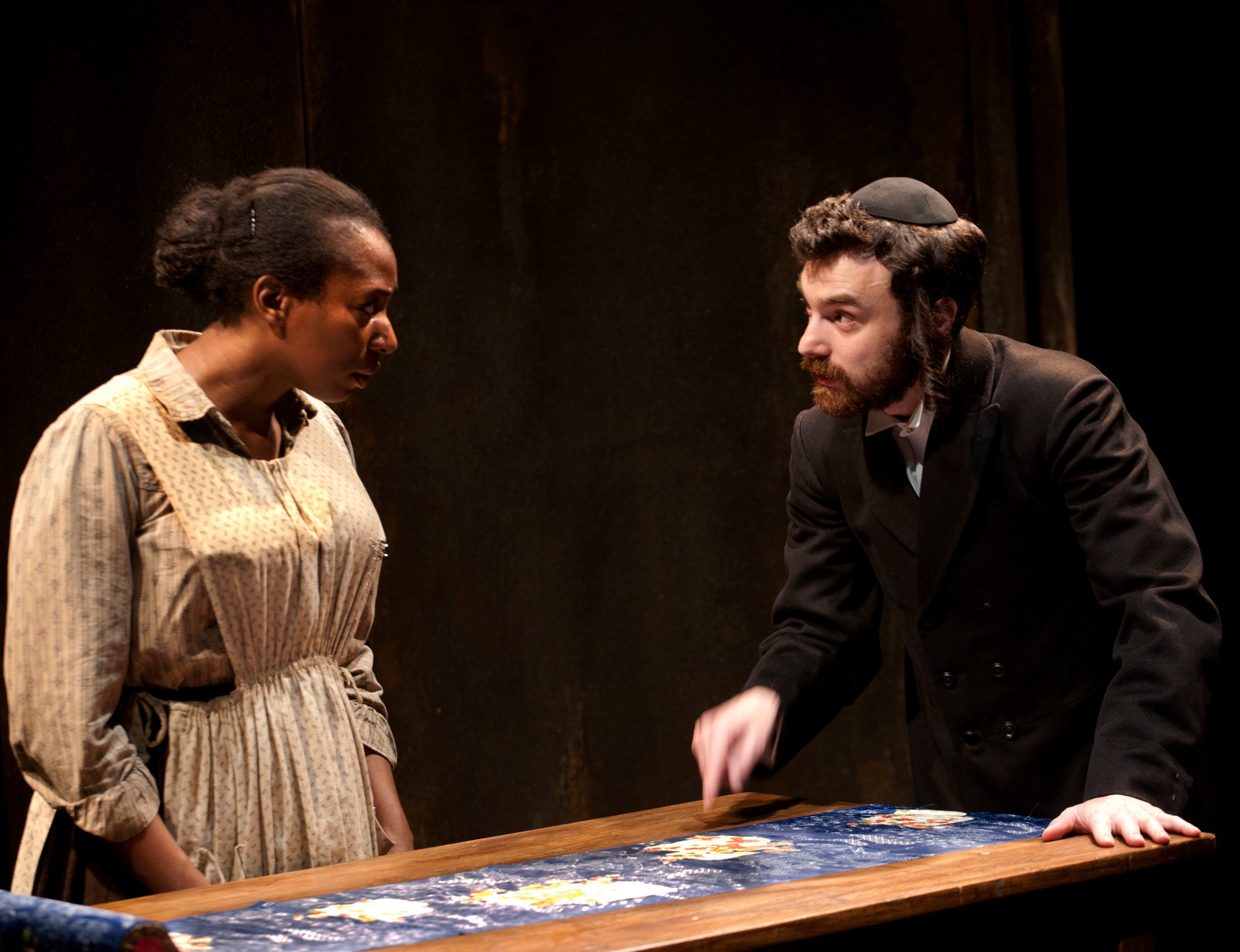Intimate Apparel, Park Theatre, review: Superbly acted production is a serious delight
A drama rich in empathy, humour and historical imagination

Tanya Moodie's acting can be relied on for excellence but she is giving the performance of her life in this UK premiere – splendidly directed by Laurence Boswell and now transferred to London from the Ustinov Studio in Bath – of Lynn Nottage's beautiful 2003 play.
The proceedings begin and end with the projection of a labelled sepia photograph of an “unidentified negro” woman. Inspired by what little is known of the lives of her great-grandparents, Nottage has written a speculative drama, rich in empathy, humour and historical imagination, that creates a story for this forgotten figure and releases her from the clutches of anonymity.
It's New York in 1905 and Esther, an unmarried African-American seamstress in her mid-30s, has lived in the same rooming house for 18 years. She specialises in making exquisite lingerie for clients who range from Sara Topham's bored, unhappily married Fifth Avenue socialite to Rochelle Neil's defiantly jaunty, piano-playing black prostitute.
Esther buys her material from a Romanian Orthodox Jew (a very charming Ilan Goodman) and there's a shy, aching kinship of spirit – a mutual respect that longs to but can't topple into romance – in their shared sensual and aesthetic appreciation of the feel and look of finely-wrought fabric. T
hough she has been thrifty and has saved enough money to have hopes of one day opening a beauty parlour for black women, Esther is lonely and longs for marriage. When she starts receiving letters from George, a West Indian labourer on the Panama Canal who got her address from a fellow-churchgoer, she seizes his epistolary courtship as her last chance. There are just two snags. The first is that Esther is illiterate and has to enlist the conspiratorial help of her two main clients. The second is what the shame of unemployment and racial discrimination does to newly-wed George once he's in New York.
In contrast to the other female characters who have all gone in for understandable compromise, Esther is a woman prepared to lay her whole life on the line – first in her reckless leap of faith into matrimony and then in the quietly stoical way that she drops false goals and is left alone with her talent at the end.
Tanya Moodie portrays her in a performance of intensely moving emotional transparency, every flash and flicker between strength and vulnerability, reserve and unguarded joy, and dignity and hurt registering on a face that seems to be so open a record of the character's soul that, at moments, it brilliantly looks as if it does not know quite what to do with itself in the onrush of conflicted feeling. At the same time, Moodie's stage presence radiates exactly the right grave (but not solemn) integrity.
I should stress that the play manages to be uplifting without ever lapsing into sentimentality or inspirational preachiness. Sharp, irreverent humour imbues both the dialogue and the sometimes painfully comic situations – as when the lonely brandy-swigging socialite reaches out to her boudoir-confidante Esther in too familiar a way, provoking the sharp retort “How we be friends? When I ain't never been through your front door”.
Whisking us from location to location with fluency, elegance and ragtime and blues music (the compact design in by Mark Bailey), Boswell's superlatively acted production is a serious delight.
To 27 July; 020 7870 6876
Subscribe to Independent Premium to bookmark this article
Want to bookmark your favourite articles and stories to read or reference later? Start your Independent Premium subscription today.

Join our commenting forum
Join thought-provoking conversations, follow other Independent readers and see their replies